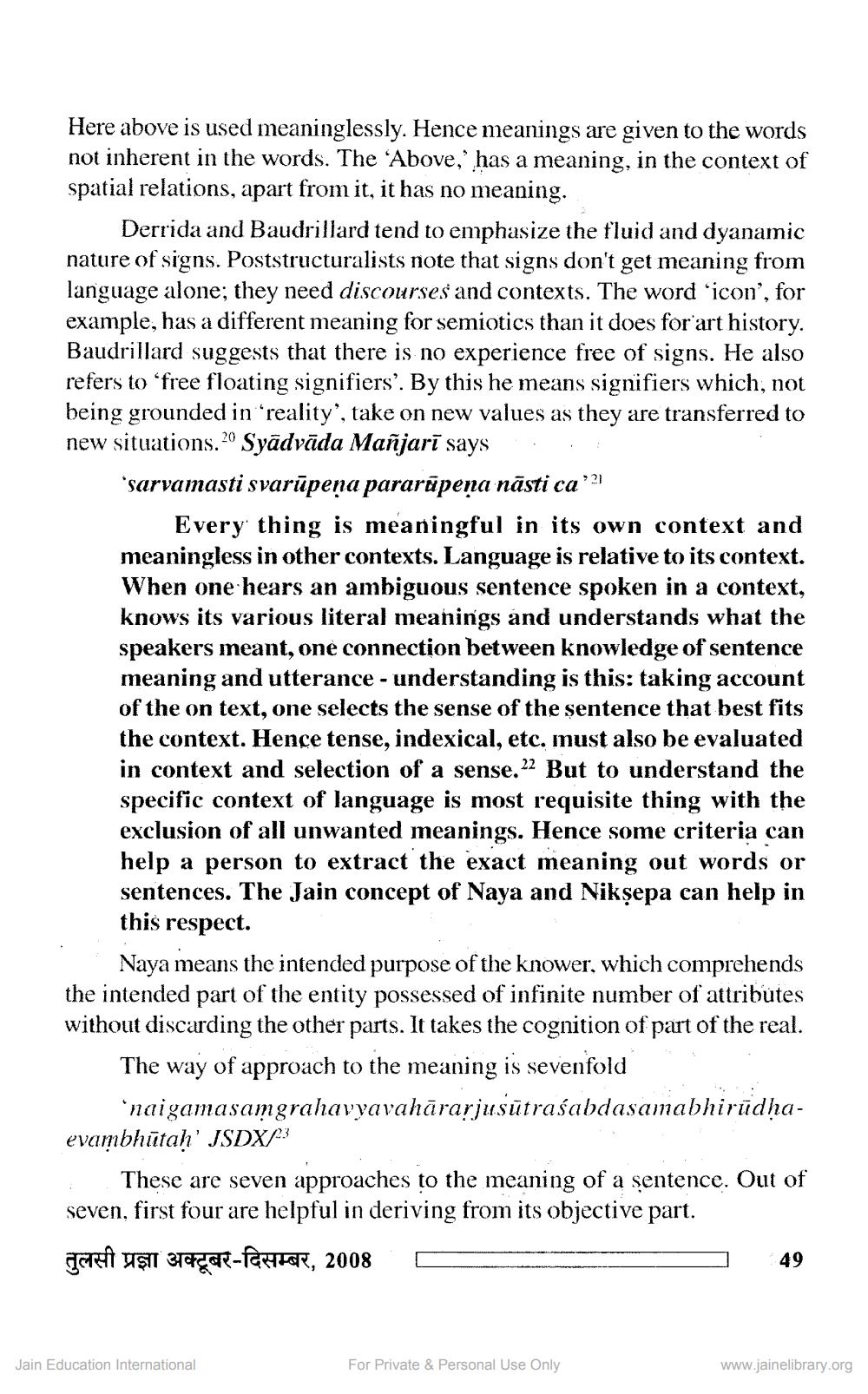________________
Here above is used meaninglessly. Hence meanings are given to the words not inherent in the words. The 'Above,' has a meaning, in the context of spatial relations, apart from it, it has no meaning.
Derrida and Baudrillard tend to emphasize the fluid and dyanamic nature of signs. Poststructuralists note that signs don't get meaning from language alone; they need discourses and contexts. The word 'icon', for example, has a different meaning for semiotics than it does for art history. Baudrillard suggests that there is no experience free of signs. He also refers to 'free floating signifiers'. By this he means signifiers which, not being grounded in 'reality', take on new values as they are transferred to new situations.20 Syādvāda Mañjarī says
'sarvamasti svarūpeṇa pararūpeņa nāsti ca12
Every thing is meaningful in its own context and meaningless in other contexts. Language is relative to its context. When one hears an ambiguous sentence spoken in a context, knows its various literal meanings and understands what the speakers meant, one connection between knowledge of sentence meaning and utterance - understanding is this: taking account of the on text, one selects the sense of the sentence that best fits the context. Hence tense, indexical, etc. must also be evaluated in context and selection of a sense. 22 But to understand the specific context of language is most requisite thing with the exclusion of all unwanted meanings. Hence some criteria can help a person to extract the exact meaning out words or sentences. The Jain concept of Naya and Nikṣepa can help in this respect.
Naya means the intended purpose of the knower, which comprehends the intended part of the entity possessed of infinite number of attributes without discarding the other parts. It takes the cognition of part of the real.
The way of approach to the meaning is sevenfold
naigamasamgrahavyavahāraṛjusūtraśabdasamabhirūdḥa
evambhutaḥ' JSDX/3
These are seven approaches to the meaning of a sentence. Out of seven, first four are helpful in deriving from its objective part.
तुलसी प्रज्ञा अक्टूबर-दिसम्बर, 2008
Jain Education International
For Private & Personal Use Only
49
www.jainelibrary.org




